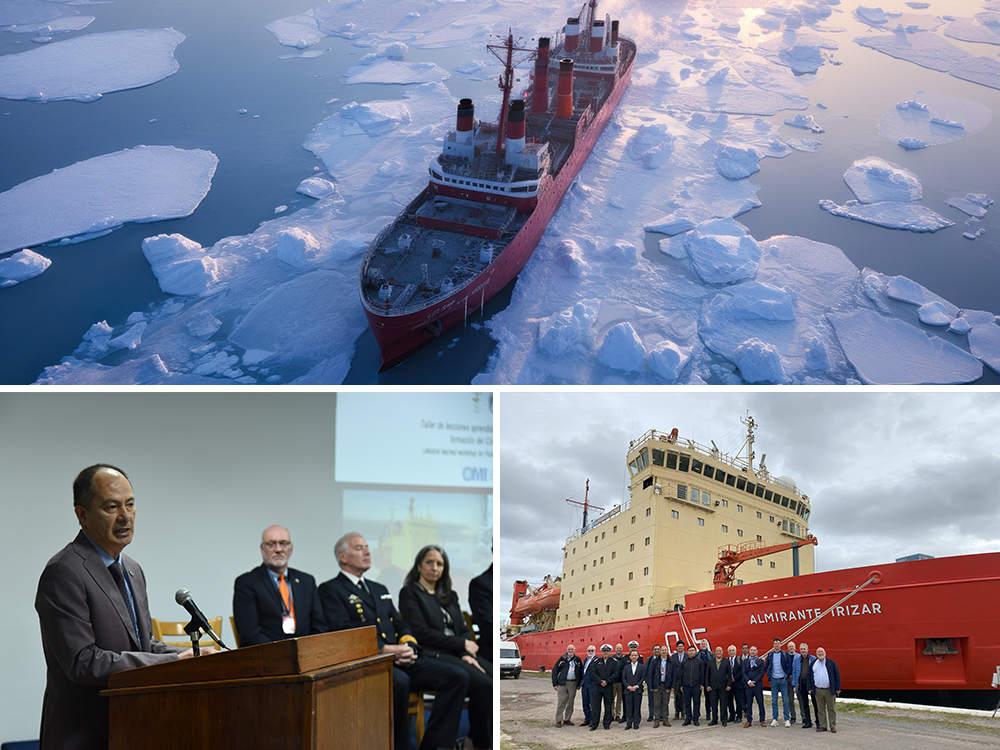
Key recommendations proposed to improve Polar Code training : IMO
Argentina, along with co-sponsors Canada, Chile, Georgia, Malaysia, Philippines, South Africa and Türkiye, has tabled 14 recommendations with the IMO’s Sub-Committee on Human Element, Training and Watchkeeping (HTW), aimed at enhancing training programmes for seafarers who operate in polar waters.
Among these are recommendations to issue manning and training guidelines for pleasure yachts and fishing vessels operating in polar waters; to review and revise the competency standards for seagoing personnel and instructors; to update current training courses on the Polar Code and seafaring in polar conditions; and to leverage e-learning to deliver training.
The recommendations stemmed from an international workshop to review lessons learned over five years of delivering mandatory training since 2019, including on the implementation of the International Code for Ships Operating in Polar Waters (Polar Code). The Polar Code is mandatory for ships operating in the inhospitable waters surrounding the two poles, covering safety and protection of the environment, and training of seafarers.
The workshop, held from 31 October to 3 November in Buenos Aires, Argentina, brought together 24 participants from 14 countries (Argentina, Canada, Chile, China, Denmark, Finland, France, Georgia, Malaysia, Panama, Philippines, South Africa, Türkiye and Slovenia). They included highly experienced training instructors, seafarers, and maritime administration representatives with expert knowledge in the application of Polar Code provisions within their areas of responsibility.
Many delegates had participated in one of the five Regional Train-the-Trainer Workshops, held between 2019 and 2022. Discussions covered best practices in implementing training programs and improving the delivery of specific training, based on IMO Model Courses 7.11 and 7.12 on Basic and Advanced Training for Ships Operating in Polar Waters.
Host country Argentina, along with several co-sponsors, has submitted the findings and recommendations to the HTW Sub-Committee, to be considered during the comprehensive review of the 1978 International Convention on Standards of Training, Certification and Watchkeeping for Seafarers (STCW Convention) and the Seafarers’ Training, Certification and Watchkeeping Code (STCW Code). The comprehensive review aims to adapt the Convention and Code to new technical developments in shipping, environmental protection and climate change.

